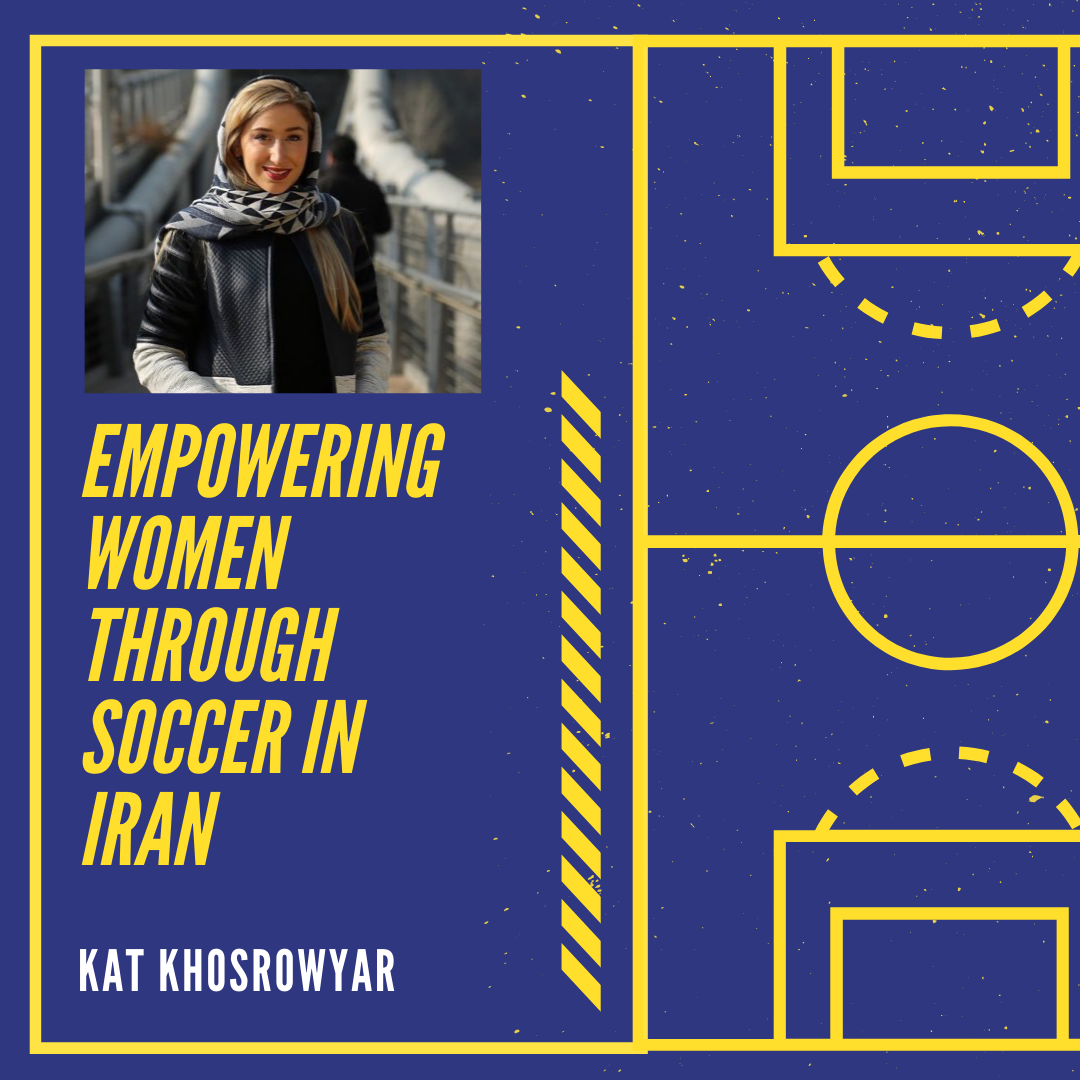– by Aliyan Jafri
Tulsa native, Katayoun “Kat” Khosrowyar, always knew she wanted to play soccer and somehow change the world. One summer visiting her grandparents in Iran, she heard about the Iranian National Women’s Soccer team being developed. Out of curiosity, she attended the tryouts, and to her disbelief, she was selected to be a part of the team. She knew that this opportunity was special, and when seeing the diversity, passion, and pride the teammates had, she knew this was her calling. Balancing her games and studies, she constantly commuted between the UK and her games. She graduated with honors from the University of Birmingham UK with a Master’s in Chemical Engineering. Her mission and passion have always been championing women’s rights to play sports and bridging the gap between her two cultures: American and Iranian. She further excelled in her soccer career and became the first woman representing Iran to receive the FIFA/AFC ‘A’ license for coaching soccer. She is former Head Coach of the Under 19 team where she was nominated Best Coach of Asia. She has been published in many articles and documentaries for her efforts and developments in empowering young girls and women in sports and acts as a sports diplomat.
The webinar begins with Kat, an American Iranian, offering to find a solution to bridge the two cultures together as mentioned earlier. During the 1970s, Tulsa was a prominent place for oil and gas companies and Kat’s family business was in that industry. She first found her love for soccer when she kicked a ball at the age of five. As she progressed through her age groups, she began to catch the notice of the Olympic development, state, and eventually the regional teams, one step closer to the US national soccer team.
In the summer of 2005, Kat decided to visit Iran for the first time to meet her grandparents, something she planned on doing before committing to her time in college and soccer. While discussing this, she dispels some stereotypes about women in Iran by informing the audience that women in Iran can indeed vote, drive, and hold positions in government. There was no soccer team in Iran, motivating Kat to push officials in the country to form a women’s team. In an interesting turn of events, she succeeded in convincing the officials by juggling an orange and doing ‘keepy-ups.’ Kat decided to stay in Iran and bring progress to women’s sports in Iran.
In 2011, big tournament organizations such as the Olympics, and the World Cup committee, passed a hijab ban meaning women could not wear the scarf while playing on the pitch. This was something Kat lobbied hard against. Even though she didn’t grow up wearing the hijab, she knew she represented millions of girls in Iran who wanted to play soccer and wore hijabs. The ban was eventually lifted in 2013.
Kat transitioned from that issue to her early retirement from her playing career by taking up her coaching degrees at a very young age of 24. She spent six years being trained by the best coaches around the world and finally got her coaching license. Kat decided to come back to Iran and coach the women’s national team towards the World Cup. When it came to scouting talent for selecting her squad of players, Kat wanted to make sure every girl in Iran had the opportunity to show her why they deserve to play for Iran. As a result, the coach traveled to every city, town, and village in Iran.
Another issue brought up during the webinar was that women were not allowed to attend soccer games in the stadium. Eventually, when women were allowed to attend games in Iran after pressure from FIFA, Kat cited the positive reaction it had on the women’s national team. Kat has seen the growth of the women’s league in Iran expand from 40 women to over 2 million women competing across Iran. Additionally, they are being given recognition in the media by being invited to talk shows and publishing books about their playing career and experience. According to Kat, psychologically, it was a big step for the women’s team of Iran to go from competing against one another to playing against the likes of the United States, Belarus, and Russia. To conclude, Kat thanks everyone for listening to her and closes by displaying a photo of the Iranian team playing soccer on top of a mountain in Kathmandu, Nepal.
To watch the full interview and discussion, watch the webinar here:

